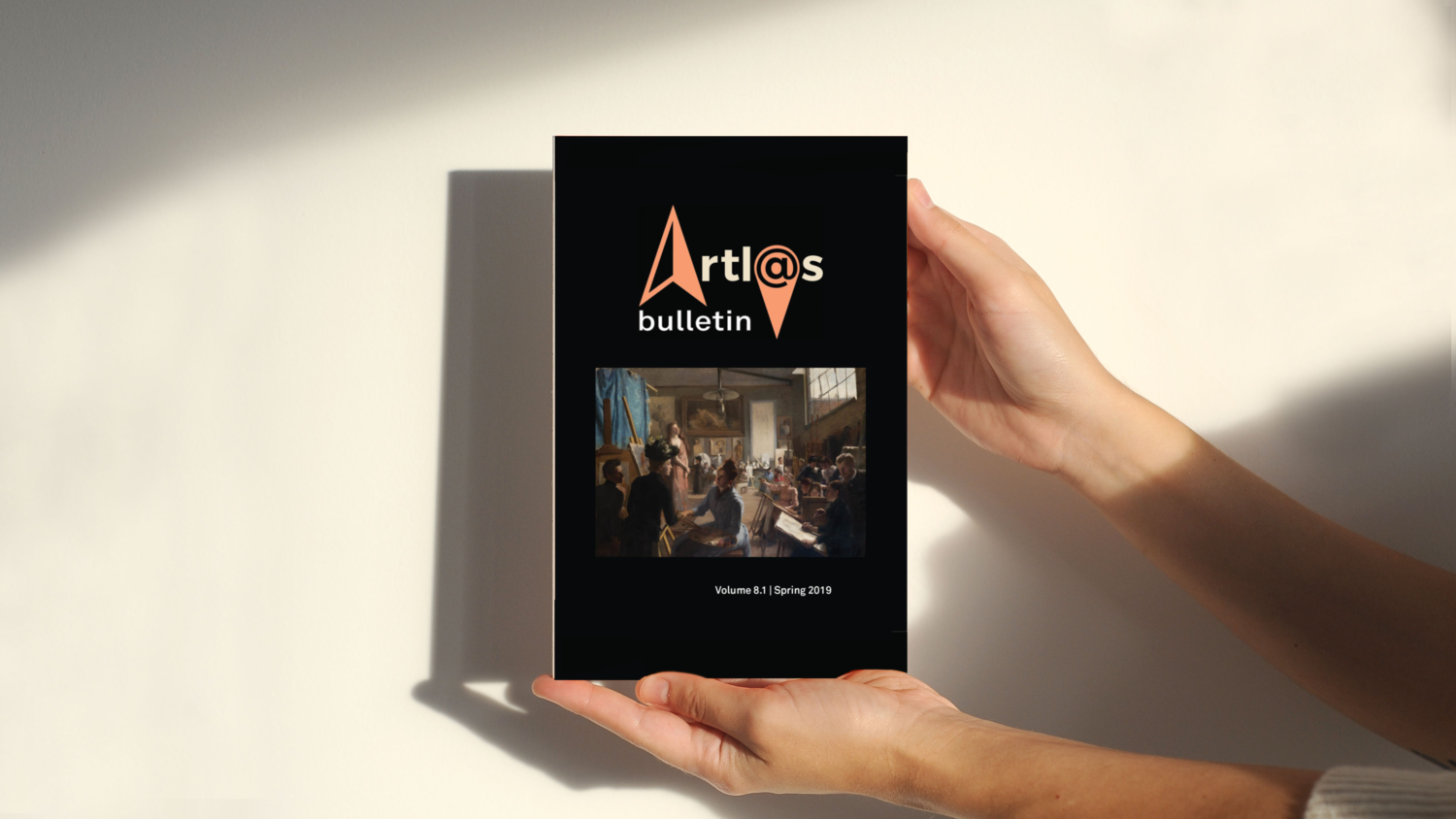Éditions
The Women Artists Shows.Salons.Societies project was launched in 2017 as a collaboration between Artl@s and AWARE. Combining AWARE’s ambitions to restore the presence of 20th-century women artists in the history of art, and Artl@s’s desire to provide scholars with the data and tools necessary to question the canonical art historical narratives through quantitative and cartographic analyses, we decided to work on group exhibitions of women artists.
Our first ambition is to build a community of scholars and work together to develop a common terminology and even possibly a common and consistent methodology to study these events, because the ones used in the field of exhibition history are inadequate.None of these exhibitions “made art history” or can be thought as “exemplary,”and the discursive silence that surrounds them require art historians to come-up with new questions, new research strategies, and new discourses.
Through the programs we organized and will organize, and through the tools and resources we are making available to the public, including this issue of the Artl@s Bulletin, we also want to contribute to a global history of all-women exhibitions from the 1870s to the 1970s.
TÉLÉCHARGER ET LIRE L’INTRODUCTION EN INTÉGRALITÉ SUR LE SITE DE L’ARTL@S BULLETIN.
- Autour de Frances Benjamin Johnston, Gertrude Käsebier et Catharine Weed Barnes Ward : stratégies séparatistes dans l’exposition des femmes photographes américaines au tournant des XIXe et XXe siècles Thomas Galifot
- L’Esposizione internazionale femminile di Belle Arti (Torino, 1910-1911; 1913). Note su genere, arte e professione in Italia all’inizio del XX secolo Francesca Lombardi
- Les Polonaises s’organisent : les premières expositions de femmes artistes polonaises à l’orée du XXe siècle Ewa Bobrowska
- Le Cercle des femmes peintres de Bruxelles : un collectif, quatre expositions (1888-1893) Denis Laoureux
- “Non più Cenerentole!” – The Società delle Artiste at the 1906 Mostra Nazionale di Belle Arti in Milan Chiara Iorino
- The Exhibition of Former Students of the Elise von Jung-Stilling Drawing School in Riga in 1904 Baiba Vanaga
- Women Artists to Victims of War – The First Exhibition of the Moscow Union of Women Painters and its Reception by the Contemporary Press Natalia Budanova
- Actividades femeninas: Women’s collective exhibitions in Chile between 1914 and 1939 Gloria Cortés Aliaga
- An Exhibition of One’s Own: the Salón Femenino de Bellas Artes (Buenos Aires, 1930s-1940s) Georgina G. Gluzman
- The Exhibitions of the Femmes Artistes Modernes (FAM), Paris, 1931-38 Paula J. Birnbaum
- The Women’s Art Club and Women’s Group Exhibitions in Zagreb from 1928 until 1940 Darija Alujević et Dunja Nekić
- Women Artists’ Salon of Chicago (1937-1953): Cultivating Careers and Art Collectors Joanna Gardner-Huggett
- Α “Guarantee of Clustered Energy and Collective Promotion”: The Association of Greek Women Artists and its Exhibitions in the 1950s and 1960s Glafki Gotsi
- The Exhibition Contribuição da mulher às artes plásticas no país and the Silence of Brazilian Art Criticism Marina Mazze Cerchiaro, Ana Paula Cavalcanti Simioni et Talita Trizoli
- Se rendre visible dans l’Espagne de Franco : le « Salón femenino de arte actual » (1962-1971) M. Lluïsa Faxedas, Isabel Fontbona et Patricia Mayayo
- Exhibiting Women’s Art in Post-War Europe Agata Jakubowska
- Femmes artistes italiennes du XXe siècle : « Il complesso di Michelangelo », Rome, 1977 Laura Iamurri
- À l’assaut ! Explosion d’expositions de femmes artistes en France pendant le mouvement féministe Fabienne Dumont
L’Esposizione internazionale femminile di Belle Arti (Torino, 1910-1911; 1913). Note su genere, arte e professione in Italia all’inizio del XX secolo
Francesca Lombardi
Résumé
Il contributo intende ricostruire la vicenda delle Esposizioni internazionali femminili di Belle Arti (1910-11; 1913), prima manifestazione artistica di taglio internazionale riservata esclusivamente alle donne a essere organizzata in Italia. Promosse a Torino dalla rivista «La Donna», le due rassegne si svolsero in un momento storicamente determinante per l’affermazione di un nuovo status delle artiste, contribuendo a dare visibilità e legittimità al fenomeno della produzione artistica femminile. La ricerca ripercorre, sulla scorta soprattutto di documenti d’epoca e fonti d’archivio, la storia e gli esiti di questa innovativa esperienza, evidenziando la complessità delle reti istituzionali, sociali, di patronage e matronage che concorsero alla sua genesi e al suo successo.
Francesca Lombardi, storica dell’arte specializzata presso l’Università degli Studi di Siena, ha collaborato come ricercatrice con l’Università Roma Tre e il C.N.R. Attualmente lavora per la Sovrintendenza Capitolina ai Beni Culturali. Nell’ambito delle sue ricerche sulla cultura figurativa tra XIX e XX secolo, ha approfondito in particolare il tema della produzione artistica femminile.


